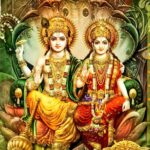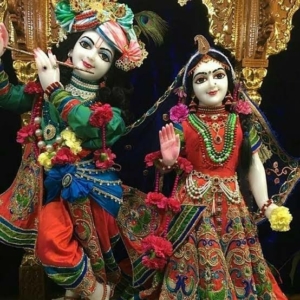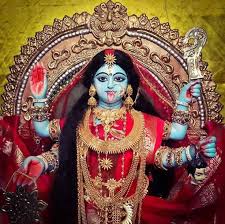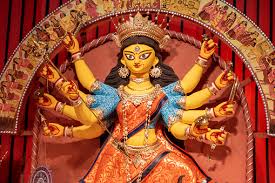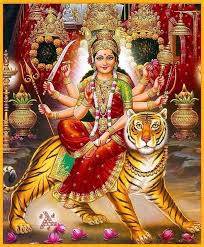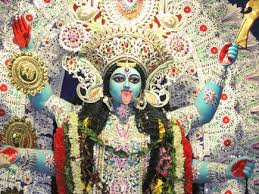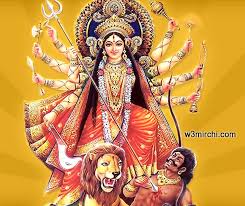भारत ही एक ऐसा देश हैं जहां एक से ज्यादा जाति, धर्म, समुदाय, लिंग, पंथ आदि के लोग मिलजुल कर रहते हैं और सभी अपनी-अपनी परंपरा और रीति-रिवाजों का पालन करने के लिए स्वतंत्र हैं।
भारत संस्कृति का विज्ञान, राजनीति, स्वास्थ्य, शिक्षा आदि के क्षेत्रों में हमेशा ही एक अलग स्थान रहा है। भारतीय संस्कृति में मानवीय मूल्यों, नैतिक मूल्यों, शिष्टाचार, आदर, गुरुओं का सम्मान, अतिथियों का सम्मान, राजनीति, दर्शन, धर्म, समाज, परंपराएं, रीति-रिवाज, सौंदर्य़ बोध, आध्यात्मिकता, आदि का बेहद खूबसूरत तरीके से समावेश किया गया है।
भारतीय संस्कृति के महत्व को आज की पीढ़ी को समझाने के लिए कई बार स्कूल-कॉलेजों में आयोजित परीक्षाएं अथवा निबंध लेखन प्रतियोगताओं में भारतीय संस्कृति के विषय पर निबंध लिखने के लिए कहा जाता है, इसलिए आज हम आपको अपने इस पोस्ट में भारतीय संस्कृति पर हैडिंग के साथ निबंध उपलब्ध करवा रहे हैं, जिसका चयन आप अपनी जरूरत के मुताबिक कर सकते हैं –
प्रस्तावना –
भारत विविधताओं का देश है, जहां अलग-अलग धर्म, जाति, पंथ, लिंग के लोग आपस में मिलजुल कर रहते हैं। अनेकता में एकता ही भारतीय संस्कृति की मूल पहचान है। भारतीय संस्कृति सबसे प्राचीन संस्कृति होने के बाबजूद भी आज अपने नैतिक मूल्यों और परंपराओं को बनाए हुए है।
प्रेम, धर्म, राजनीति, दर्शन, भाईचारा, सम्मान, आदर, परोपकार, भलाई, मानवीयता, आदि भारतीय संस्कृति की प्रमुख विशेषताएं हैं। भारत में रहने वाले सभी लोग सभी अपनी संस्कृति का आदर करते हैं और इसकी गरिमा को बनाए रखने में अपना सहयोग करते हैं।
संस्कृति की परिभाषा एवं संस्कृति शब्द का अर्थ – Meaning of Culture
किसी देश, जाति, समुदाय आदि की पहचान उसकी संस्कृति से ही होती है। संस्कृति, देश के सभी जाति, धर्म, समुदाय को उसके संस्कारों का बोध करवाती है।
जिससे उन्हें अपने जीवन के आदर्शों और नैतिक मूल्यों पर चलने की प्रेरणा मिलती है और अच्छी भावनाओं का विकास होता है। विरासत में मिले विचार, कला, शिल्प, वस्तु आदि ही किसी देश की मूल संस्कृति कहलती है।
संस्कृति शब्द का मुख्य रुप से संस्कार से बना हुआ है, जिसका शाब्दिक अर्थ होता है सुधारने अथवा शुद्धि करने वाली या फिर परिष्कार करने वाली। वहीं चार वेदो में से एक यजुर्वेद में संस्कृति को सृष्टि माना गया है, जो समस्त विश्व में वरण करने योग्य होती है।
जीवन को सम्पन्न करने के लिए मूल्यों, मान्यताओं एवं स्थापनाओं का समूह ही संस्कृति कहलाता है, सीधे शब्दों में संस्कृति का सीधा संबंध मनुष्य के जीवन के मूल्यों से होता है।
सभ्यता एवं संस्कृति:
सभ्यता और संस्कृति को भले ही आज एक-दूसरे का पर्याय कहा जाता हो, लेकिन दोनों एक-दूसरे से काफी अलग-अलग होती हैं। सभ्यता का सबंध मानव जीवन के बाहरी ढंग अथवा भौतिक विकास से होता है, जैसे उसका रहन-सहन, खान-पान, भाषा आदि। संस्कृति का सीधा अभिप्राय मनुष्य की सोच, चिंतन, अध्यात्म, विचारधारा आदि से होता है।
संस्कृति का क्षेत्र काफी व्यापक और गहन होता है। इसके तहत आन्तरिक गुण जैसे विन्रमता, सुशीलता, सहानुभूति, सहृदयता, एवं सज्जनता आदि आते हैं जो इसके मूल्य व आदर्श होते हैं।
हालांकि, सभ्यता एवं संस्कृति का आपस में काफी घनिष्ठ संबंध होता है, क्योंकि मनुष्य अपने विचारों से ही किसी वस्तु को बनाता है।
विश्व की सबसे प्राचीन संस्कृति के रुप में भारतीय संस्कृति:
भारतीय संस्कृति विश्व की सबसे प्राचीन संस्कृति है, लेकिन आधुनिकता और पाश्चात्य शैली अपनाने के बाबजूद आज भी भारतीय संस्कृति ने अपने मूल्यों और सांस्कृतिक विरासत को बना कर रखा है।
इसके अलावा सिंधु घाटी की सभ्यता में किए गए कुछ उल्लेखों से यह ज्ञात होता है कि आज से करीब 5 हजार साल पहले भारतीय संस्कृति का उदगम हो चुका था। यह नहीं वेदों में भारतीय संस्कृति का उल्लेख भी इसकी प्राचीनता का एक बड़ा प्रमाण है।
भारतीय संस्कृति क्यों हैं विश्व की समृद्ध संस्कृति और इसकी विशिष्टताएं:
भारतीय संस्कृति में कई अलग-अलग धर्म, समुदाय, जाति पंथ आदि के लोगों के रहने के बाद भी इसमें विविधता में एकता है। भारतीय संस्कृति के आदर्श एवं मूल्य ही इसे विश्व में एक अलग सम्मान दिलवाती है और समृद्ध बनाती है। भारतीय संस्कृति की कुछ प्रमुख विशेषताएं नीचे दी गई हैं –
भारतीय संस्कृति आज भी अपने मूल रुप-स्वरूप में जीवित है:
भारतीय संस्कृति की निरंतरता ही इसकी प्रमुख विशेषता है, विश्व की सबसे प्राचीन संस्कृति होने के बाबजूद आज भी यह अपने मूल रुप में जीवित है। वहीं आधुनिकता के इस युग में आज भी कई धार्मिक परंपराएं, रीति-रिवाज, धार्मिक अनुष्ठान कई हजार सालों के बाद भी वैसे ही चले आ रहे हैं। धर्मों और वेदों में लोगों की अनूठी आस्था आज भी भारतीय संस्कृति की पहचान को बरकरार रखे हुए है।
सहनशीलता एवं सहिष्णुता:
भारतीय संस्कृति की सबसे बड़ी खासियत सहिष्णुता और सहनशीलता है। भारतीयों के साथ अंग्रजी शासकों एवं आक्रमणकारियों द्धारा काफी क्रूर व्यवहार किया गया और उन पर असहनीय जुर्म ढाह गए, लेकिन भारतीयों ने देश में शांति बनाए रखने के लिए कई हमलावरों के अत्याचारों को सहन किया।
वहीं सहनशीलता का गुण भारतीयों को उसकी संस्कृति से विरासत में मिला है। वहीं कई महापुरुषों ने भी सहिष्णुता की शिक्षा दी है।
आध्यात्मिकता, भारतीय संस्कृति की मुख्य विशेषता:
भारतीय संस्कृति, का मूल आधार आध्यात्मिकता है, जो कि मूल रुप से धर्म, कर्म एवं ईश्वरीय विश्वास से जुड़ी हुई है। भारतीय संस्कृति में रह रहे अलग-अलग धर्म और जाति के लोगों को अपने परमेश्वर पर अटूट आस्था एवं विश्वास है।
भारतीय संस्कृति में कर्म करने की महत्वता:
भारतीय संस्कृति में कर्म करने पर बल दिया गया है। यहां कर्म को ही पूजा माना गया है। वहीं कर्म करने वाला पुरुष ही अपने लक्ष्यों को आसानी से हासिल कर पाता है और अपने जीवन में सफल होता है।कर्म जीवन की पवित्रता हैं कर्म धन से बढ़कर कोई धन नहीं है। कर्म शांति है कर्म के द्वारा हम सहनशीलता को प्राप्त होते हैं।
आपसी प्रेम एवं भाईचारा:
भारतीय संस्कृति में लोगों के अंदर एक-दूसरे के प्रति प्रेम, परोपकार, सद्भाव एवं भलाई की भावना निहित है, जो इसकी सबसे महत्वपूर्ण विशेषता है।भारतीय संस्कृति मिल बांट कर रहना सिखाती है। भारतीय के पास भक्ति है तब वह भक्ति को जन जन मे फैलाना चाहता है।
अनेकता में एकता – Anekta Mein Ekta
भारत में अलग-अलग जाति, धर्म, लिंग, पंथ, समुदाय आदि के लोग रहते हैं, जिनके रहन-सहन, बोल-चाल एवं खान-पान में काफी विविधता है, लेकिन फिर भी सभी भारतीय आपस में मिलजुल कर प्रेम से रहते हैं, इसलिए अनेकता में एकता ही भारतीय संस्कृति की मूल पहचान है।
नैतिक एवं मानवीय मूल्यों का महत्व:
भारत संस्कृति के तहत नैतिक एवं मानवीय मूल्यों को प्राथमिकता दी गई है। जिसमें विचार, शिष्टाचार, आदर्श, दर्शन, राजनीति, धर्म आदि शामिल हैं।
भारतीयों के संस्कार हैं इसकी विशेषता:
भारतीय मूल के व्यक्ति की शिष्टता एवं अच्छे संस्कार जैसे बड़ों का आदर करना, अनुशासन में रहना, परोपकार एवं भलाई करना, जीवों के प्रति दया का भाव रखना एवं अच्छे कर्म करना ही भारतीय संस्कृति की सबसे बड़ी खासियत है।
शिक्षा का महत्व – Shiksha Ka Mahatva
भारतीय संस्कृति में शिक्षा को खास महत्व दिया गया है। यहां शिक्षित व्यक्ति को ही सम्मान दिया जाता है, जबकि अशिक्षित व्यक्ति का सही रुप से मानसिक, नैतिक एवं शारीरिक विकास नहीं होने की वजह से उसे समाज में उपेक्षित किया जाता है वहीं अशिक्षित व्यक्ति अपने जीवन में दर-दर की ठोकरें खाता है।
राष्ट्रीयता की भावना:
भारतीय संस्कृति में लोगों के अंदर राष्ट्रीय एकता की भावना निहित है। राष्ट्र पर जब भी कोई संकट आया है, तब-तब भारतीयों ने एक होकर इसके खिलाफ लड़ाई लड़ी है।
अतिथियों का सम्मान:
भारतीय संस्कृति में अतिथियों को भगवान का रुप माना गया है। भारतीय खुद भुखा रह सकता है अतिथि की आवभगत में कमी नहीं रखता है। हमारे देश में आने वाले मेहमानों का खास तरीके से स्वागत कर उनको सम्मान दिया जाता है। वहीं अगर कोई दुश्मन भी मेहमान बनकर आता है तो उसका स्वागत सत्कार करना प्रत्येक भारतीय अपना फर्ज समझता है।
गुरुओं का विशिष्ट स्थान:
भारतीय संस्कृति में प्राचीन समय से ही गुरुओं को भगवान से भी बढ़कर दर्जा दिया गया है, क्योंकि गुरु ही मनुष्य को सही कर्तव्यपथ पर चलने के योग्य बनाता है और उसे समस्त संसार का बोध करवाता है।
Indian culture is the oldest and greatest culture of the world whose example is given all over the world. Indian culture is the most prosperous and prosperous and unity in diversity is its basic identity. Culture is the lifestyle of an Indian, no one can break the person who is connected to the culture. Culture establishes ideals of life value. The culture is chock-full of unflinching sense of duty
India is the only country where people of more than one caste, religion, community, gender, creed etc. live together and all are free to follow their own traditions and customs.
India has always had a distinct place in the fields of culture, science, politics, health, education etc. In Indian culture, human values, moral values, etiquette, respect, respect for teachers, respect for guests, politics, philosophy, religion, society, traditions, customs, aesthetics, spirituality, etc. have been included in a very beautiful way. .
To explain the importance of Indian culture to today’s generation, many times students are asked to write essays on the subject of Indian culture in examinations or essay writing competitions held in school-colleges, so today we are giving you a heading on Indian culture in this post. Providing essays with, which you can choose according to your need –
Preface –
India is a country of diversities, where people of different religions, caste, creed, gender live together. Unity in diversity is the basic identity of Indian culture. Indian culture, despite being the most ancient culture, is still maintaining its moral values and traditions.
Love, religion, politics, philosophy, brotherhood, respect, respect, benevolence, goodness, humanity, etc. are the main features of Indian culture. All the people living in India respect their culture and cooperate in maintaining its dignity.
Definition of Culture and Meaning of the Word Culture – Meaning of Culture
A country, caste, community etc. is identified by its culture. Culture makes all the castes, religions and communities of the country aware of its rituals.
Due to which they are inspired to follow the ideals and moral values of their life and develop good feelings. The inherited ideas, arts, crafts, objects etc. are called the original culture of a country.
The word culture is mainly derived from sanskar, which literally means one who improves or purifies or refines. On the other hand, in Yajurveda, one of the four Vedas, culture has been considered as creation, which is eligible to be celebrated in the whole world.
The set of values, beliefs and establishments to make life complete is called culture, in simple words, culture is directly related to the values of human life.
Civilization and Culture:
Civilization and culture may be said to be synonymous with each other today, but both are quite different from each other. Civilization is related to the external way or physical development of human life, such as its living, food, language etc. Culture directly refers to human thinking, contemplation, spirituality, ideology etc.
The field of culture is quite broad and intensive. It includes inner qualities such as humility, good manners, empathy, kindness, and gentleness which are its values and ideals.
However, there is a very close relationship between civilization and culture, because man creates something with his thoughts.
Indian culture as the oldest culture of the world:
Indian culture is the oldest culture in the world, but despite adopting modernity and western style, Indian culture has maintained its values and cultural heritage even today.
According to historians, the proof of Indian culture being the oldest has been proved by the rock paintings and ethnographic and archaeological remains found in Bhimbetka, Madhya Pradesh and the excavation done in Narmada valley.
Apart from this, it is known from some mentions made in the Indus Valley Civilization that Indian culture had originated about 5000 years ago. Not only this, the mention of Indian culture in the Vedas is also a great proof of its antiquity.
Why Indian culture is the richest culture of the world and its specialties:
There is unity in diversity in Indian culture even after people of many different religions, communities, caste creed etc. live in it. The ideals and values of Indian culture give it a different respect in the world and make it prosperous. Some of the salient features of Indian culture are given below –
Indian culture is still alive in its original form:
Continuity of Indian culture is its main feature, despite being the oldest culture in the world, it is still alive in its original form. At the same time, in this era of modernity, even today many religious traditions, customs and religious rituals are continuing in the same way even after thousands of years. People’s unique faith in religions and Vedas is still keeping the identity of Indian culture intact.
Tolerance and Tolerance:
The biggest feature of Indian culture is tolerance and tolerance. Indians were treated very cruelly by the British rulers and invaders and unbearable crimes fell on them, but Indians tolerated the atrocities of many invaders to maintain peace in the country.
Whereas Indians have inherited the quality of tolerance from their culture. At the same time, many great men have also taught tolerance.
Spirituality, the main feature of Indian culture:
The basic basis of Indian culture is spirituality, which is basically related to religion, karma and divine faith. People of different religions and castes living in Indian culture have unwavering faith and belief in their God.
Importance of Karma in Indian Culture:
In Indian culture, emphasis has been laid on doing karma. Here karma is considered as worship. On the other hand, only a man who works can easily achieve his goals and is successful in his life. Karma is the purity of life, there is no wealth greater than Karma money. Karma is peace. Through Karma we attain tolerance.
Mutual love and brotherhood:
In Indian culture, the feeling of love, charity, harmony and goodness towards each other is inherent in the people, which is its most important feature. Indian culture teaches to live together and share. Indian has Bhakti, then he wants to spread Bhakti among the masses.
Unity in Diversity – Anekta Mein Ekta
People of different caste, religion, gender, creed, community etc. live in India, whose lifestyle, speech and food habits are very diverse, but still all Indians live together with love. Therefore, unity in diversity is the basic identity of Indian culture.
Importance of moral and human values:
Moral and human values have been given priority under Indian culture. In which thoughts, manners, ideals, philosophy, politics, religion etc. are included.
The rites of Indians are its specialty:
The decency and good manners of a person of Indian origin such as respecting elders, being disciplined, doing charity and goodness, having compassion for living beings and doing good deeds is the biggest specialty of Indian culture.
Importance of education
Education has been given special importance in Indian culture. Here only the educated person is respected, while the uneducated person is neglected in the society due to lack of proper mental, moral and physical development, while the uneducated person stumbles every step of the way in his life.
Sense of Nationality:
In Indian culture, the feeling of national unity lies within the people. Whenever any crisis has befallen the nation, Indians have unitedly fought against it.
guest of Honour:
In Indian culture, guests have been considered as the form of God. The Indian himself can remain hungry, does not lack in the hospitality of the guest. The guests coming to our country are honored by welcoming them in a special way. On the other hand, if an enemy also comes as a guest, then every Indian considers it his duty to welcome him.
Special position of Gurus:
In Indian culture, since ancient times, Gurus have been given more status than God, because only Guru makes a man capable of walking on the right path of duty and makes him understand the whole world.




